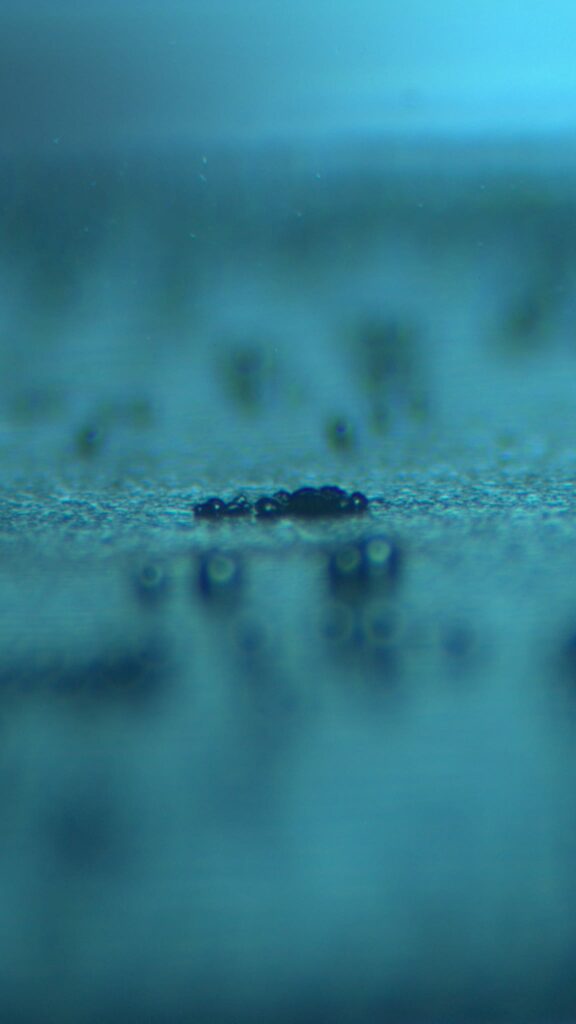Where ? Matière et Systèmes Complexes (MSC), CNRS UMR 7057, Paris 13
With whom ? Adrien Bussonnière Contact me
Heterogeneous cavitation : origin of the cavitation nuclei We are looking for a motivated intern to join our research team and perform experiments in fluid mechanics. This internship aims at understanding the origin of bubbles !
Indeed, the apparition of macroscopic bubbles inside a liquid either by boiling when temperature increases, from cavitation when pressure decreases or in supersaturated solution (large quantity of dissolved gas) originates from nano/microscopic bubbles, named nuclei. These nuclei are trapped in surface defects or stabilized by floating impurities. The nucleation, in this case, is called heterogeneous in opposition to the homogeneous nucleation occurring without pre-existing nuclei which required tremendous excitation, e.g. -140 MPa for the cavitation [1]. Although the nuclei are usually assumed to be formed during liquid immersion, a recent study show that they can also spontaneously appear [2]. The aim of the overall project is to unravel the mechanism responsible for this nucleation of nuclei !

To probe the invisible nuclei (nano/microbubbles), the experiment consists in focusing acoustic waves on a well-controlled defect to vary the pressure. If a nucleus is hidden inside the defect, it will become unstable and grow to a visible size, i.e. acoustic cavitation, allowing its detection. Furthermore, the nucleus initial size can be assessed by measuring the critical pressure at which cavitation occurs. The nuclei reformation dynamic can then be monitored by repeating the experiment several times.
The student will take part in the improvement of the experimental setup and protocol. Once the setup calibrated, different parameters such as defect shape or dissolved gas content will be tested to explore their influence on the nuclei nucleation. The results will be analyzed to identify possible nucleation mechanisms. We are looking for a M2 student with strong interest in experiments and in coding (python) to control the setup. A fluid mechanics background, especially in diffusion and capillarity, is needed to interpret the results. Knowledge in acoustics is advisable but not mandatory. During this internship, and potentially the following PhD (secured funding from ANR), the student will acquire expertise in acoustic, cavitation, capillarity, wetting and dissolved gas transport. Moreover, the intern will gain strong experimental skills through the elaboration of the complex setup.
[1] F. Caupin & E. Herbert, Cavitation in water : a review, C. R. Physique, 2006, 7, 1000-1017[2] A. Bussonnière, Q. C. Liu & P. A. Tsai, Cavitation nuclei regeneration in water-particle suspension,
Phys. Rev. Lett., 2020, 124, 034501

